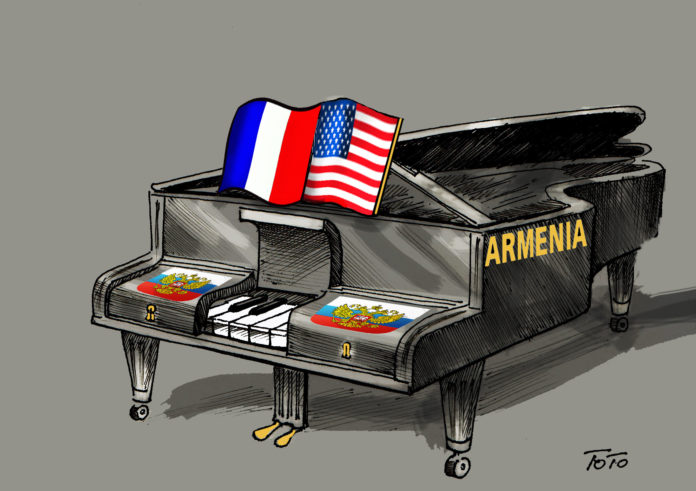There have been pro-Armenian measures in the West recently. Is this a political breakthrough, a false start or something else? We will find out in due course as we analyze trends and developments in the South Caucasus.
It was extremely frustrating for the Armenian side to see the international community’s indifference during the 44-Day War in 2020, which isolated Armenia. We must also remember the cavalier attitude of the Trump Administration toward Armenia, which resulted in territorial losses and many deaths. Almost 5,000 young men between the ages of 18 and 22 perished, which was felt doubly in a country struggling to retain a stable demographic profile.
Gradually, after the war, as the international community began to communicate with Armenia, the message to Nikol Pashinyan’s administration was that Yerevan has to lower the bars regarding its expectations so that the international community could lend a helping hand for the beleaguered country to recover. Lowering the bar meant for Yerevan to reconcile with the fact that for all practical intents and purposes, Karabakh was lost. It was not enough to contend with the loss of Karabakh, when Azerbaijan began invading the sovereign territory of Armenia itself. As of this date, Azerbaijan’s forces are occupying 125 square kilometers of Armenia’s soil.
It seems that Azerbaijani aggression has hit a turning point which has enabled the international community to react. A series of powerful statements emanated from Europe and the United States in the past couple of weeks.
Time will show whether those are genuine and what impact they may have on Azerbaijan’s intentionally cruel and belligerent course.
The illusive peace treaty between Armenia and Azerbaijan is being dragged from Brussels to Sochi and from Washington to Prague, with no end in sight.










